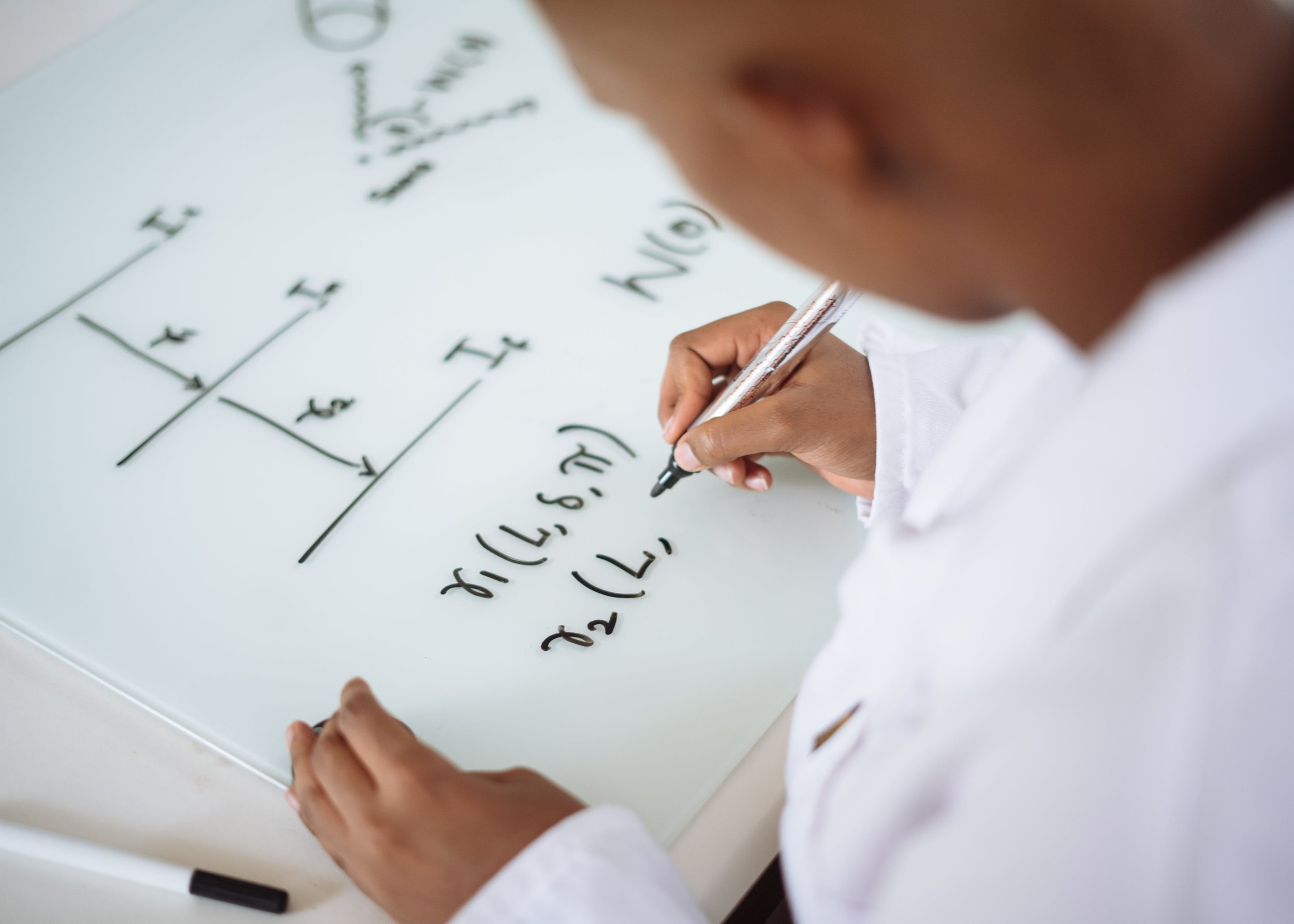
Mathematics
All our students take mathematics and further mathematics to develop confidence in solving complex problems.
Mathematics and Further Mathematics
Our programme provides students with a comprehensive understanding of mathematical concepts, encouraging them to explore their practical applications and develop confidence in solving complex problems.
Key learning outcomes:
Apply mathematical models to analyse and solve real-world problems.
Build logical reasoning and precision in calculations.
Develop the ability to interpret and use data effectively.
By studying mathematics, our students learn how to work with numbers and information. They also improve their ability to think clearly and solve problems on their own. They focus on being accurate, use maths to understand different situations, and think about their results.
Further Mathematics
Further Mathematics offers students an opportunity to delve deeper into advanced mathematical concepts, preparing them for competitive STEM programmes and demanding university courses.
Key areas of study include:
Pure mathematics: Algebra, Trigonometry, Differentiation, Integration
Mechanics: Forces, Kinematics, Momentum, Energy, Work and Power
Statistics: Representation of data, Permutations and combinations, Probability discrete random variables and Normal distribution
This extended syllabus allows students to develop a sophisticated understanding of mathematics, enabling them to solve more intricate and abstract problems.
Why study mathematics at Crucible Lusaka?
Global excellence: We follow the Cambridge International AS and A Level syllabus, renowned for its academic rigour and international recognition.
Real-world application: Students learn to connect abstract concepts with practical solutions, preparing them for success in diverse fields.
Future-focused: Our Mathematics and Further Mathematics courses provide a strong foundation for competitive university programmes in engineering, technology, and beyond.
Find out more about Cambridge International As and A level Maths and Further Maths
Mathematics programme
-
Pure Mathematics develops students’ ability to think logically, abstractly, and critically. It lays the foundation for advanced mathematical studies and equips students with tools to solve theoretical and practical problems.
Algebra
Focuses on manipulating and solving equations, inequalities, and functions. Students will learn to simplify complex expressions and apply algebraic reasoning to a variety of problems.
Trigonometry
Teaches students to analyse the relationships between angles and distances in geometric contexts, including advanced trigonometric identities and equations.
Differentiation
Develops students’ understanding of rates of change, including applications to optimisation problems and motion. This is a critical skill in physics, engineering, and economics.
Integration
Equips students with the ability to calculate areas under curves and solve problems involving accumulation. Integration forms a key part of calculus and has numerous practical applications.
-
Mechanics applies mathematical principles to physical systems, helping students understand and model real-world phenomena such as motion, forces, and energy. It builds analytical and problem-solving skills relevant to physics and engineering.
Forces
Introduces the fundamental principles of force and equilibrium, enabling students to analyse static and dynamic systems.
Kinematics
Explores motion in one and two dimensions, including concepts of velocity, acceleration, and displacement. Students will learn to model and predict the movement of objects.
Momentum
Focuses on understanding momentum and impulse, including their conservation in collisions and interactions.
Energy, Work, and Power
Teaches students to calculate energy transfers and efficiency in mechanical systems, exploring how forces cause changes in energy.
-
Statistics equips students with the ability to collect, analyse, and interpret data. It emphasises understanding patterns, assessing risk, and applying statistical methods to solve real-world problems.
Representation of data
Students learn how to organise and present data effectively, using tools like charts, graphs, and tables to communicate insights clearly.
Permutations and combinations
Develops an understanding of counting principles and arrangements, forming the basis for advanced probability and combinatorial analysis.
Probability and discrete random variables
Focuses on modelling uncertainty, calculating probabilities, and working with probability distributions to make predictions.
Normal distribution
Introduces one of the most widely used statistical models, enabling students to understand variability and analyse trends in large datasets.

“I’m eager to play my part in shaping the future of Zambia through education.”

